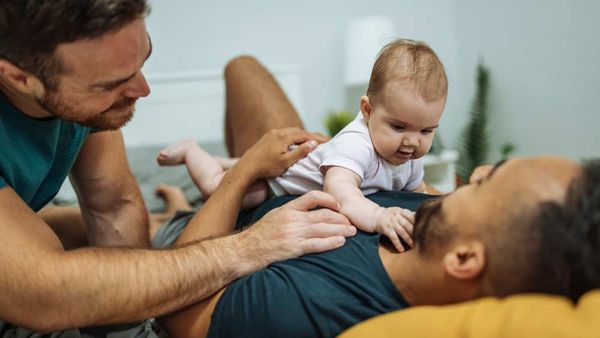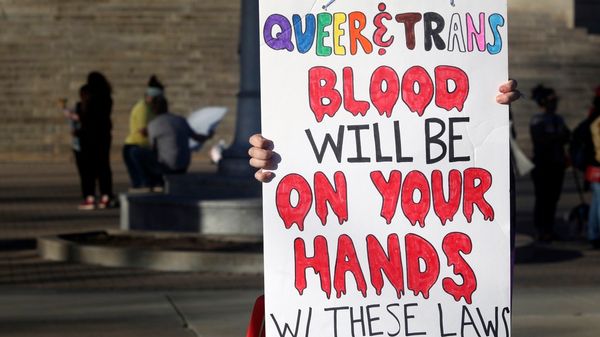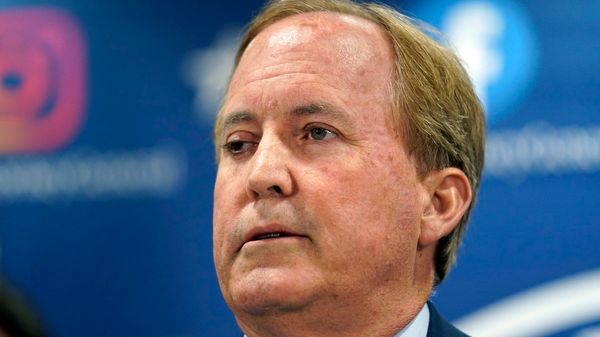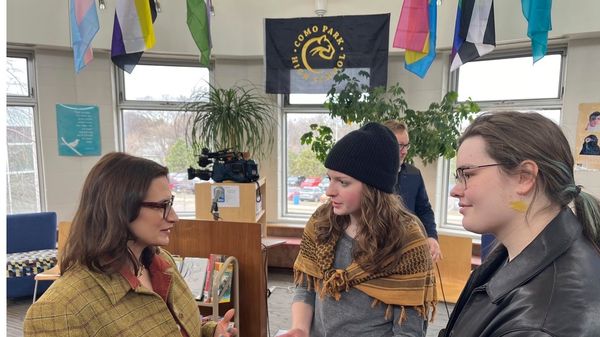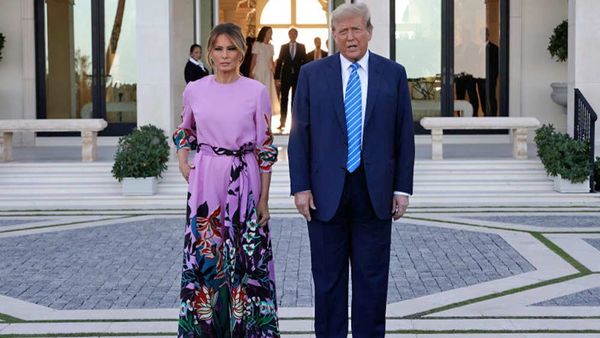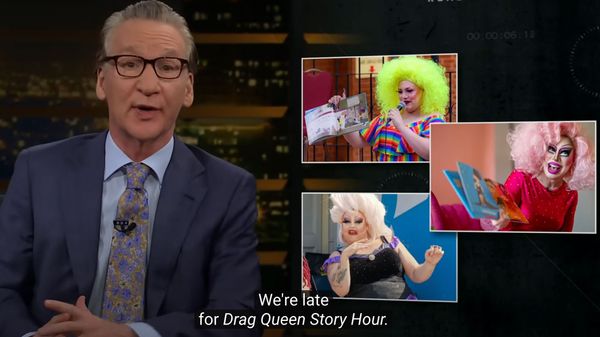July 31, 2016
Miss. Gov Goes to County Fair to Defend Blocked Anti-LGBT Law
READ TIME: 3 MIN.
PHILADELPHIA, Miss. - Top Mississippi leaders redoubled their defense Thursday of the state's attempt to protect religious objections to same-sex couples, transgender people or anyone engaging in sex outside marriage.
"They started this fight," Republican Gov. Phil Bryant said. "We're simply trying to carry out the will of the people of the state of Mississippi as we were duly elected to do, and we're going to continue to do that."
"We operate based upon convictions. We don't need a poll to tell us that we need to fight for your religious liberty," said House Speaker Philip Gunn, R-Clinton.
Bryant and Gunn spoke at the Neshoba County Fair, where U.S. Sen. Roger Wicker called on Republicans to unite behind party presidential nominee Donald Trump to defeat Democratic nominee Hillary Clinton and preserve the GOP majority in the U.S. Senate.
State Treasurer Lynn Fitch called for a state constitutional amendment requiring Mississippi to balance its budget, saying this year's budget problems show the need for one.
U.S. District Judge Carlton Reeves blocked House Bill 1523, the religious objections law, less than an hour before it would have taken effect July 1. Bryant and Department of Human Services Executive Director John Davis are appealing. Opponents recently filed court papers showing that the Alliance Defending Freedom wrote a proposal that ultimately mirrored key parts of the law.
"They get so excited because they say, 'You know the governor and the Legislature, well, actually they had some contact with some religious organizations,'" Bryant said. "Yes, yes we did. We do that quite often. As a matter of fact, I reach out to the American Family Association, the Alliance for Defending Freedom. I'll continue to do so."
Bryant called for people to recognize more of the state's positive achievements including the new Continental AG tire plant planned for Clinton, a recent award for educational innovation from the Education Commission of the States and his decision to require single able-bodied adults who get food stamps to participate in work, job training or community service.
"Unfortunately, the blame-Mississippi-first crowd just keeps on going. But I've always been optimistic," Bryant said,
Gunn said other actions in 2016's legislative session, which was riven by tensions between the Republican supermajority and the Democratic minority in the House, were also motivated by the principled convictions of leading House Republicans. But he also offered an olive branch of sorts to Democrats.
"If you want to work, I know that the best decisions are not made in a vacuum," Gunn said. "I know that we reach consensus by discussing the issues, by reaching across the aisle, by trying to find common ground. We need to better understand each other and we need to better deal with the issues of the day."
Wicker, fresh off a speech at the Republican National Convention, said preserving Republican majorities and electing Trump would allow the GOP to enact priorities such as repealing Obama's health care plan, authorizing the Keystone XL pipeline that would import Canadian oil into the U.S. and ending federal funding of Planned Parenthood.
"Hillary Rodham Clinton must never get back in the Oval Office," said Wicker, who chairs the National Republican Senatorial Committee, dedicated to electing GOP senators.
"Donald Trump is committed to cutting taxes and Hillary Clinton is not. Donald Trump is committed to appointing judges that follow the Constitution and Hillary Clinton is committed to exactly the opposite," Wicker said.
Fitch called for Mississippi to pass a law guaranteeing equal pay. She also called for a state constitutional amendment for a balanced budget, saying a looming deficit in the just-started 2016 budget proved her case.
"It sounds sort of like Washington: We don't know what the answer is; we'll balance it later," Fitch said. "Well, we don't want to be like Washington."
Bryant said he would support such an amendment, which would have to be proposed by the Legislature or go through an arduous process of signature-gathering to be placed on the ballot by citizens. Gunn said he hadn't heard Fitch's proposal.
"I do know we live within our means every year," he said.


